Knowledge Hub
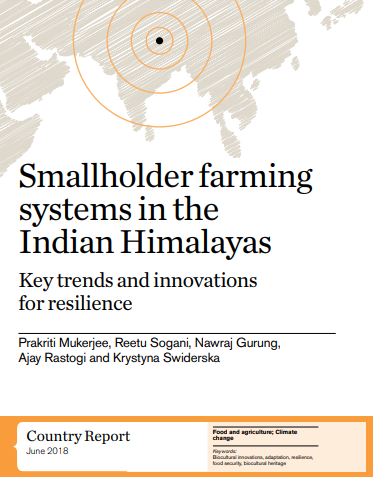
Smallholder farming systems in the Indian Himalayas: key trends and innovations for resilience
2018
Author(s): Mukerjee P, Sogani R, Gurung N, Rastogi A, Swiderska K
Traditional farmers in the Central and Eastern Indian Himalayas have observed significant climatic changes in recent years, reducing agricultural productivity. They have responded by innovating to increase resilience and yields, using traditional knowledge, biodiversity and external knowledge. This report explores key trends in livelihoods, food security, crop diversity and biocultural heritage across ten communities; the biocultural innovations developed in response to climatic and socioeconomic changes; and the social factors that have supported biocultural innovation.
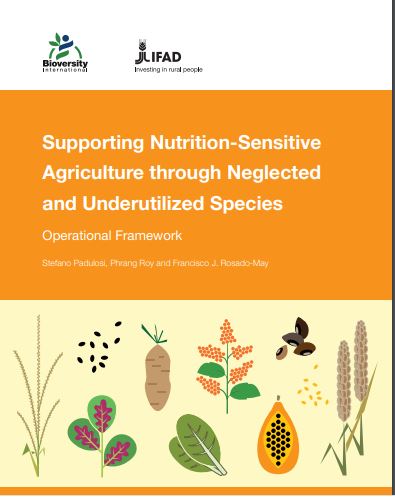
Supporting Nutrition Sensitive Agriculture through Neglected and Underutilized Species: Operational Framework.
2019
Author(s): Padulosi S, Phrang R, Rosado-May F.J.
The purpose of this Operational Framework is to support Country Directors, CPMs and ICOs to integrate NUS and Indigenous Peoples issues into the Loans and support the implementation of IFAD Nutrition Sensitive Agriculture Action Plan 2016-1823 and capacity building efforts in that direction.
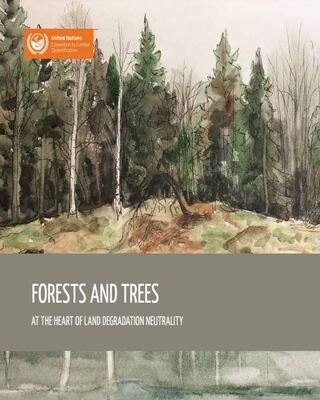
Forests & Trees: At the Heart of Land Degradation Neutrality
2019
Author(s): United Nations Convention to Combat Desertification
The brochure compiles the initiatives of undertaken by countries, leaders, communities and businesses in response to the e existential threat of Land Degradation at all levels, from global to local. The concept of Land Degradation Neutrality (LDN) is an important part of the international response. Supported by the United Nations Convention to Combat Desertification (UNCCD) and embedded in the 2030 Agenda for Sustainable Development under SDG target 15.3, LDN provides a unique framework for governments to measure degradation, design appropriate responses, and monitor progress.
Clinical Relevance and Application of Traditional Complementary and Alternative Medicine for the Management of Diabetes and Hypertension on the African Continent, 2000-2017: A Narrative Review
2018
Author(s): Frimpong E, Nlooto M
The aim of this study was to find clinical relevance and use of TCAM in the management of diabetes and hypertension on the African continent. To achieve our aim Google scholar, web of science, Pub-med and Cochrane library electronic databases were searched for the period 2000-2017 using specific keywords related to the study.
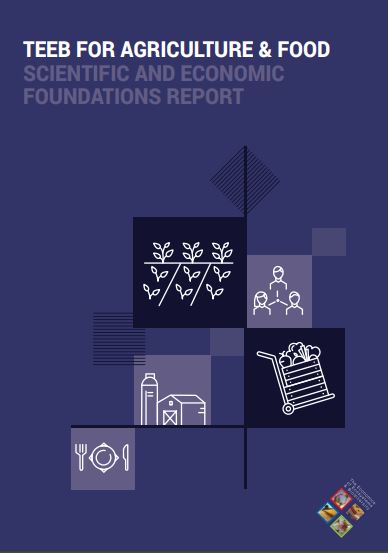
TEEB for agriculture & food: scientific and economic foundations
2018
Author(s): The Economics of Ecosystems and Biodiversity (TEEB) Office, UN Environment
The TEEBAgriFood âScientific and Economic Foundationsâ report addresses the core theoretical issues and controversies underpinning the evaluation of the nexus between the agri-food sector, biodiversity and ecosystem services and externalities including human health impacts from agriculture on a global scale. It argues the need for a 'systems thinking' approach, draws out issues related to health, nutrition, equity and livelihoods, presents a Framework for evaluation and describes how it can be applied, and identifies theories and pathways for transformational change.

Applying the TEEBAgriFood Evaluation Framework Overarching Implementation Guidance
2018
Publisher/Organisation: Global Alliance for the Future of Food
TEEBAgriFood Framework developed in 2018 has become a foundational reference for true cost accounting in food systems. A number of âproof of conceptâ applications have been completed, and a growing and diverse community including business leaders, policymakers, researchers, farmers, and civil society have been seeking to strengthen and mainstream the application of TEEBAgriFood.
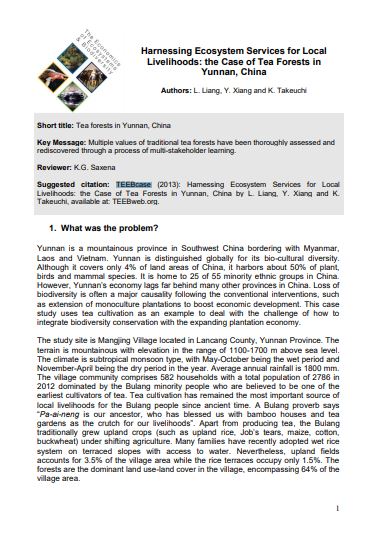
Harnessing Ecosystem Services for Local Livelihoods: the Case of Tea Forests in Yunnan, China
2013
Author(s): Liang L, Xiang Y, Takeuchi K
This case study shows multiple values of traditional tea forests have been thoroughly assessed and rediscovered through a process of multi-stakeholder learning.
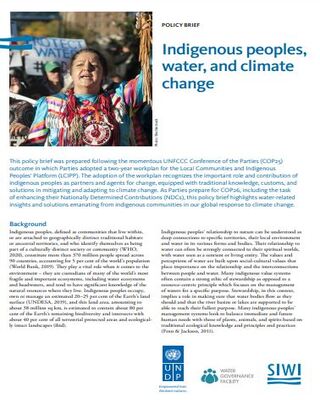
Indigenous People, Water, and Climate Change
2020
Author(s): Stockholm International Water Institute
This policy brief was prepared following the momentous UNFCCC Conference of the Parties (COP25) outcome in which Parties adopted a two-year workplan for the Local Communities and Indigenous Peoplesâ Platform (LCIPP). The adoption of the workplan recognizes the important role and contribution of indigenous peoples as partners and agents for change, equipped with traditional knowledge, customs, and solutions in mitigating and adapting to climate change. As Parties prepare for COP26 including the task of enhancing their Nationally Determined Contributions (NDCs), this policy brief highlights water-related insights and solutions emanating from indigenous communities in our global response to climate change.
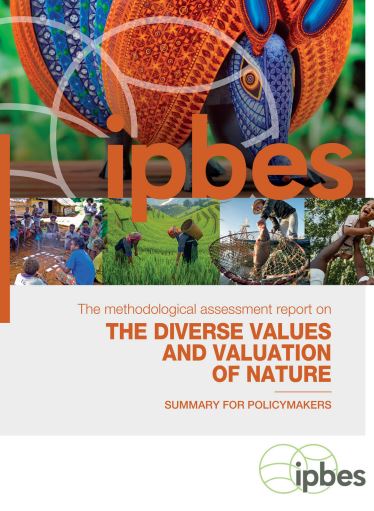
Summary for Policymakers of the Methodological Assessment Regarding the Diverse Conceptualization of Multiple Values of Nature and Its Benefits, Including Biodiversity and Ecosystem Functions and Services
2022
Author(s): Intergovernmental Science-Policy Platform on Biodiversity and Ecosystem Services
The values assessment provides guidelines, criteria, tools and a road map to navigate the ways in which values play out in decisions, as well as the role values and valuation can have in achieving more sustainable pathways. It should be noted that the assessment does not provide quantifications.
To assist MGNREGS to amplify the climate resilience impacts of its work, IIED in partnership with Madhya Pradesh Council of Science & Technology (MPCST) co-developed the Climate Resilience Information System and Planning Tool for MGNREGS (CRISP-M). A top-down and bottom-up approach to help communities make climate-smart decisions and enable them to absorb the effects of climate risks, adapt to climate impacts, and transform their capacities to deal with growing climate impacts.



